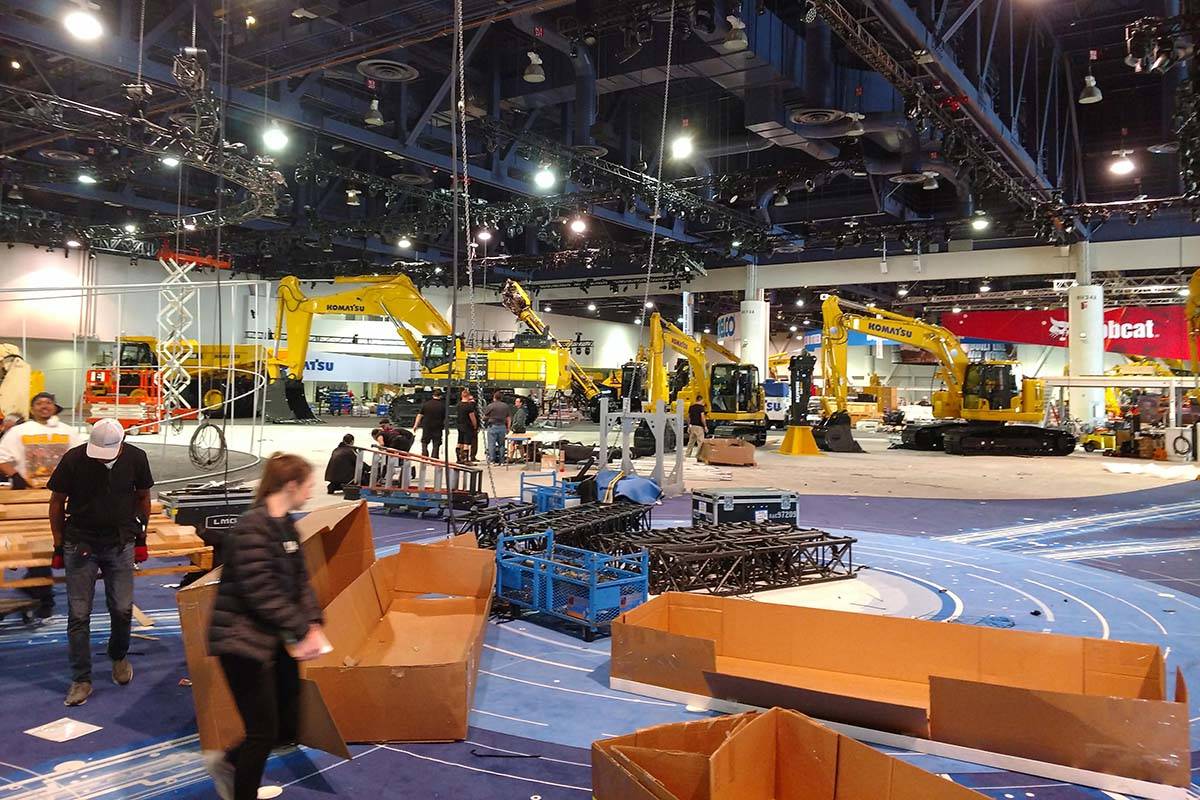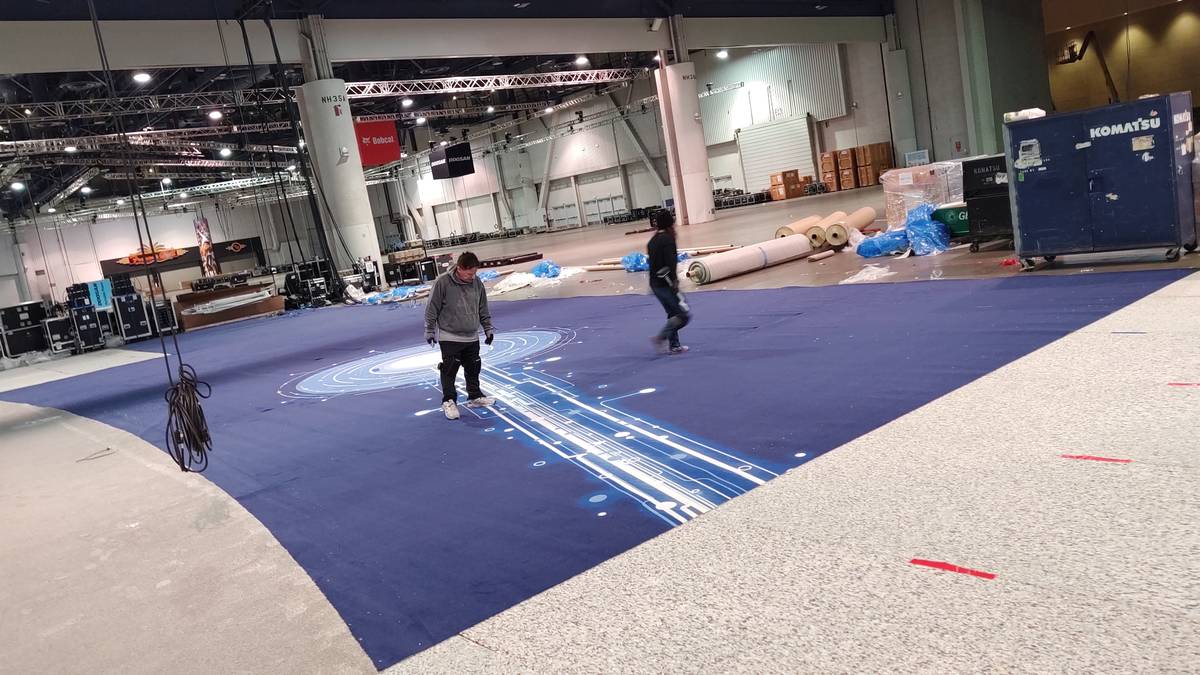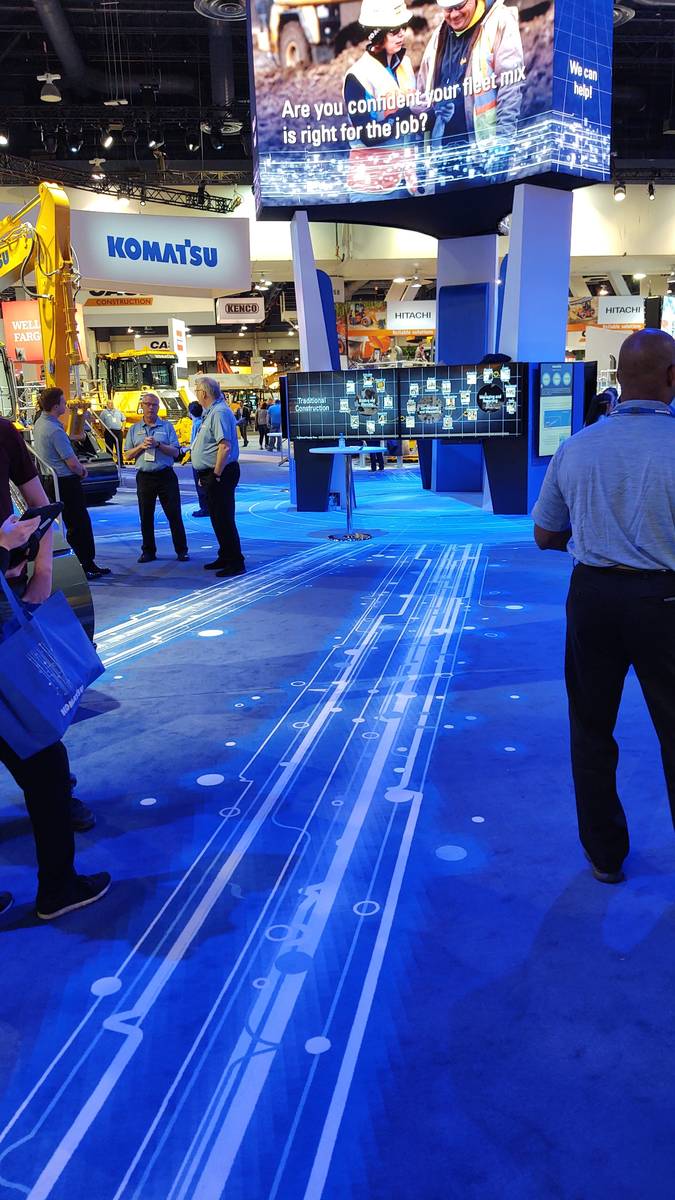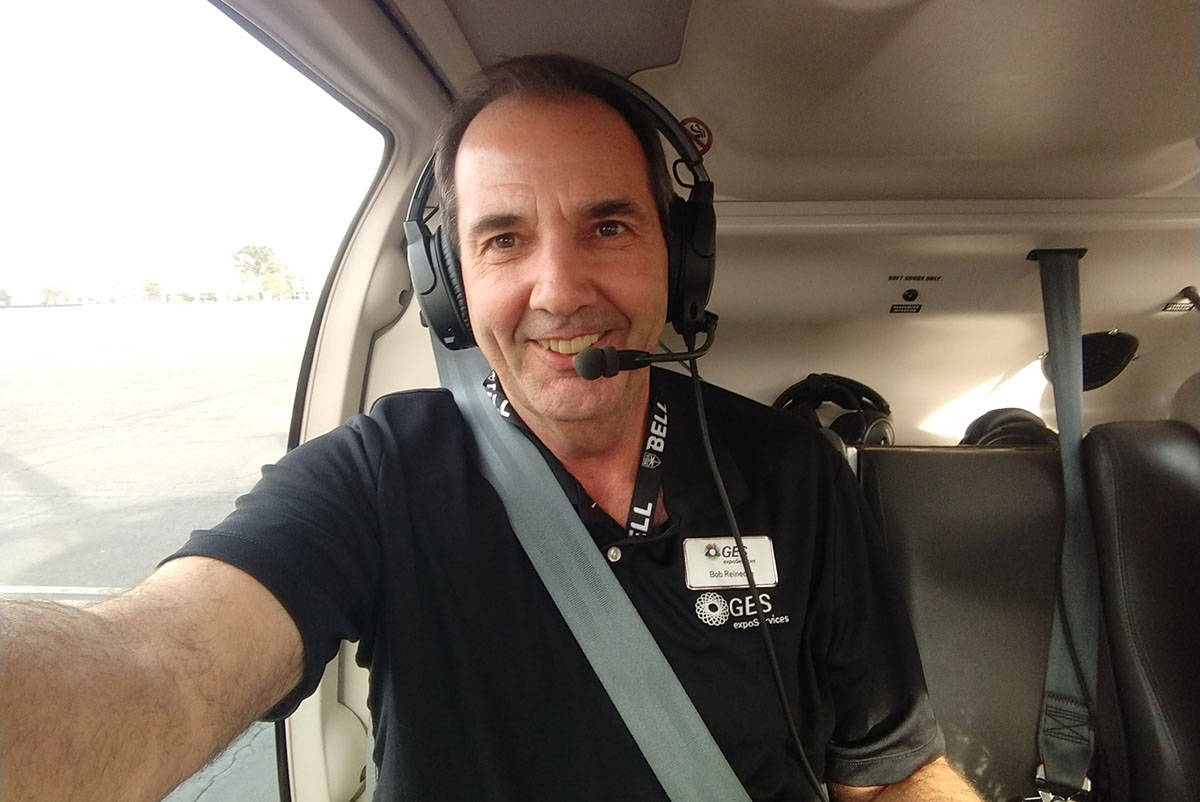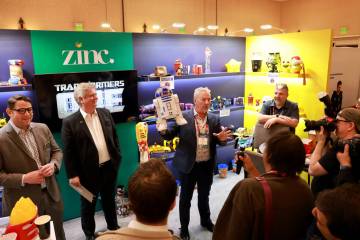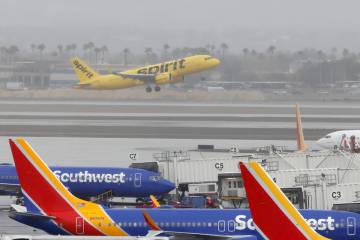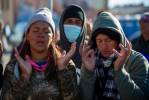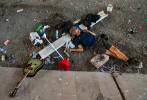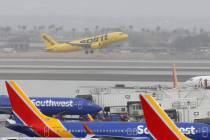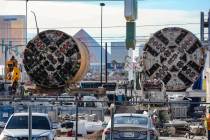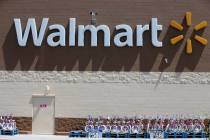Many jobs lost when Las Vegas trade show industry shuts down
When the National Association of Broadcasters made its difficult decision to cancel rather than delay its convention planned for late April, thousands of laborers lost work.
The lost space rental revenue for the Las Vegas Convention Center and the thousands of missed room nights for local resorts have been widely recognized, but many more are missing job opportunities that occur when a monster show such as NAB — one of Southern Nevada’s top five annual shows — comes to town.
The meetings and events industry is reeling from the high number of cancellations related to coronavirus concerns. Meetingsnet.com estimates that the industry will lose $233 billion by this summer.
The U.S. Travel Association said 5.9 million jobs would be lost in the travel industry, which includes the meetings and conventions sector. That represents a $900 billion loss in 2020 — seven times the amount lost in the 9/11 attacks.
The Governor’s Office on Economic Development said the loss of 400,000 tourism industry jobs, including in the meetings, conventions and trade show sector, would result in a $34 billion loss for Nevada.
While some trade shows are finding alternative dates instead of canceling, others, including NAB, aren’t. That will probably prevent Las Vegas from eclipsing 2019’s record 6.6 million convention visitors, as it was anticipating this year.
Lost jobs
Among the contracted workers who miss out when a show cancels, according to the Las Vegas Convention and Visitors Authority:
■ Electricians, plumbers, carpet layers and workers who build exhibitors’ booths and other show components.
■ Service providers that work with exhibitors, including Cox Communications for broadband services, Centerplate for food and beverages, FedEx for transporting goods and documents and American Express for on-site financial transactions.
■ Security officers, who are hired by show managers to ensure access and control of show floors, assisting LVCVA security officers.
■ Transportation workers who shuttle conventioneers from hotels to convention centers. Taxicab and ride-hailing service drivers also aren’t making runs between resorts and McCarran International Airport.
■ Cleaners hired by show managers to keep exhibit floors clean, in addition to LVCVA custodial workers tasked with overall facility cleanliness.
■ Floral decorators hired to enhance booth appearance.
■ Tent companies used by exhibitors to set up facilities in parking lots and other external locations.
■ Furniture providers used by show managers and exhibitors to create office environments for business meetings.
■ Voice and acting talent used to deliver monologues about products in specialized booth presentations.
■ Photographers hired by show managers and exhibitors to memorialize events.
■ Other tourism-related companies. Thousands of visitors — especially from overseas — take advantage of Las Vegas’ proximity to the Grand Canyon to take helicopter trips before or after a convention or on slow days during a show.
■ Registration staff hired to register exhibitors and attendees, distribute credentials and provide wayfinding assistance.
■ Audiovisual production professionals to provide various display and messaging services for exhibitors.
■ Freight companies to deliver large booth components. Truck drivers often arrive early in Las Vegas and park their rigs before they are marshaled to deliver to exhibit halls in well-timed and choreographed sequences.
■ Temporary laborers to supplement booth staffing.
“The list goes on and on and on,” said David DuBois, CEO of the International Association of Exhibitions and Events, an organization affiliated with the $300 billion global meetings industry. “We refer to it as (the industry) having a long tail, and in this case, it’s an ugly tail.”
Impact of cancellations
How long will workers be affected in Southern Nevada?
It’s a fair question that two of the city’s largest event management companies — Freeman Company LLC and GES-Global Experience Specialists — can’t answer.
“We haven’t communicated at all with employees about when we expect them to be back, because we don’t know,” said Lea Lashley, communications director for Dallas-based Freeman, which was contracted to manage NAB. “A lot of shows have canceled, and a lot of people have postponed. We understand that a lot of our customers don’t know how this is going to impact their business, and they don’t know what they’re going to do next. We don’t talk on behalf of our customers, so we’re not going to do that now.”
Freeman’s CEO, Bob Priest-Heck, said in a statement that among the options the company is keeping open is providing support for online meetings.
No answers
Detra Page, a spokeswoman for Las Vegas-based GES, also said it’s too early to project when and how shows would return.
“We’re working with our clients,” Page said. “If they need to postpone, we’re assisting them to reschedule their events. But now, it’s too soon to predict when the shows will be back as they were.”
A Harris poll conducted the weekend of March 21-23 indicated it could take two to three months for Americans to attend large social gatherings once government restrictions are lifted.
According to the poll, after two to three months, nearly a fifth of Americans said they would host or attend a large social gathering (22 percent), go to the movies (21 percent), greet people with a handshake (21 percent), stay in a hotel (20 percent) or go to a sporting event (17 percent).
Fifteen percent of Americans said it would take two to three months for them to be able to visit a casino or take public transportation again.
Uncertainties surrounding the novel coronavirus leave DuBois with nothing definitive.
“I’m an association executive with a hospitality industry background of 40 years, and I’m not even going to guess how long it’s going to be,” he said. “We have moved events out of March, April and May into the fall, so my best guess is that it’s going to last through the end of May and it’ll take three to six months for companies to build their business back up to the way it was in 2019, and it may even take longer than that.”
Contact Richard N. Velotta at rvelotta@reviewjournal.com or 702-477-3893. Follow @RickVelotta on Twitter.



